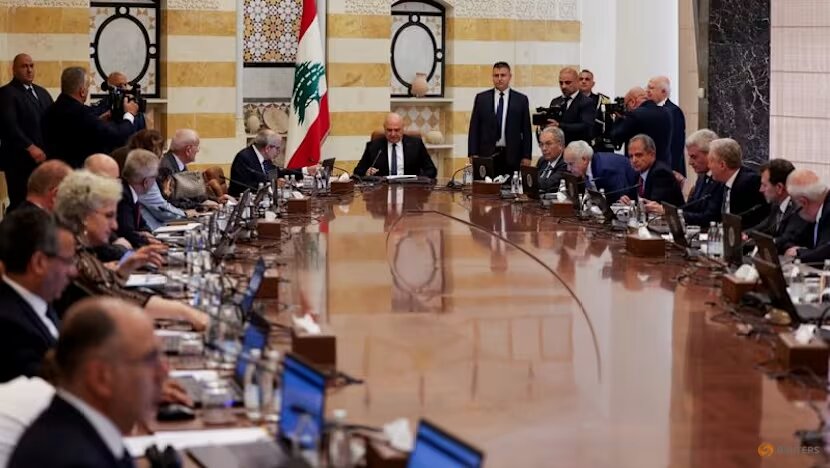Will the Lebanese government continue on the path of rationality?

BEIRUT — In Lebanon’s political history, no cabinet session has garnered as much international and Arab attention as the one on September 5th that will probably shape Lebanon’s future. It will determine whether the country is heading toward a settlement, chaos, or somewhere in between, like the current situation.
At the beginning of the session, the five Shiite ministers withdrew as Army Commander General Rodolphe Heikal began to discuss the army’s plan to disarm Hezbollah. The ministers considered the plan based on the cabinet decision as “invalid and contrary to the national charter.”
Following the Shiite ministers’ withdrawal, the government had to avoid slipping to the point of no return, as the language of its statement appeared polished and softened.
Thus, the September 5 session has effectively nullified the August 5 and 7 sessions, as it has linked the implementation of U.S. envoy Thomas Barrack’s proposal to Israeli approval, a cessation of attacks and assassinations, and the return of prisoners.
Speaker Nabih Berri’s welcome of the government’s decisions was notable. Hezbollah circles also welcomed the government’s positive step, particularly the reported willingness in principle to discuss a national strategic plan to protect the country from attacks.
Reportedly, the Army Commander is committed to civil peace, as he questioned the army’s capability and the obstacles to implement the plan, primarily caused by the Israeli intransigence and its occupation of Lebanese border points.
Government spokesman Paul Morcos stated: “The army will begin implementing the arms monopoly plan, but within the available capabilities—logistically, financially, and humanly— the government is committed to developing a national security strategy with the aim of achieving the principle of extending state control over all the territory and restricting the control of weapons.”
Morcos noted that Lebanon has taken key steps regarding the American plan, but Israel has not taken any reciprocal steps. Israel continues violating Lebanese territory by repeatedly breaching the ceasefire agreement and evading its obligations. These acts clearly show risks to regional security.
Given the three presidents’ commitment to civil peace and internal stability, the atmosphere prevalent in the country prior to the session will likely be different, opening the door to serious national dialogue.
However, some analysts believe that the government’s decision may not meet Washington’s dictates, and therefore the Israeli enemy may resort to further escalation of its aggression.
Meanwhile, the U.S. envoy Morgan Ortagus is arriving in Beirut, this Sunday, accompanied by the new commander of CENTCOM, Brad Cropper.
CENTCOM commanders’ visits to Beirut are usually not announced until after they take place, and this sends a significant signal.
While the visit relates to the military committee charged with implementing UN Resolution 1701, in addition to examining the needs of the Lebanese Army to carry out its missions, there are other explanations regarding the timing of the visit.
It is worth to notice the recent New York Times report on Washington’s position on the issue of Hezbollah’s disarmament, which confirms what is already certain: the Donald Trump administration wants the Lebanese government to adopt a persuasive approach to Hezbollah’s disarmament, otherwise confrontation is inevitable.
There is no doubt that the coming days will be decisive and critical.
